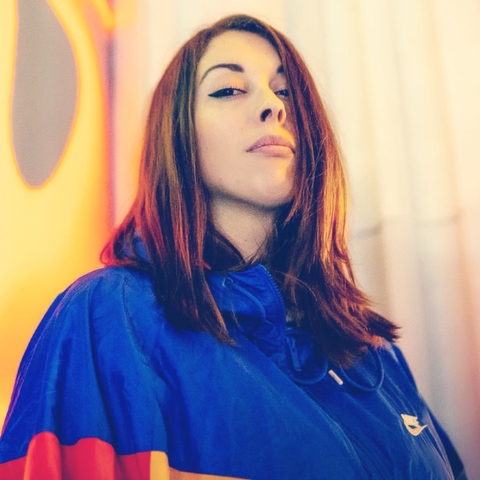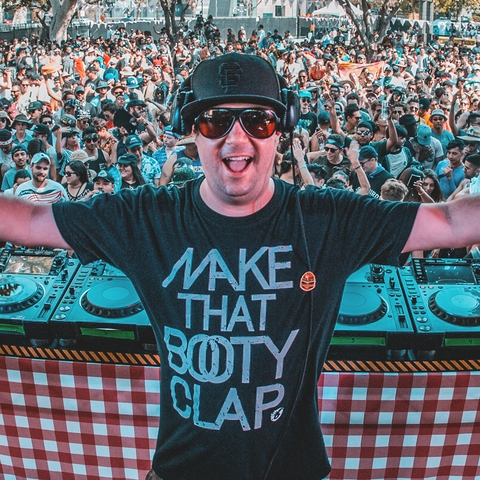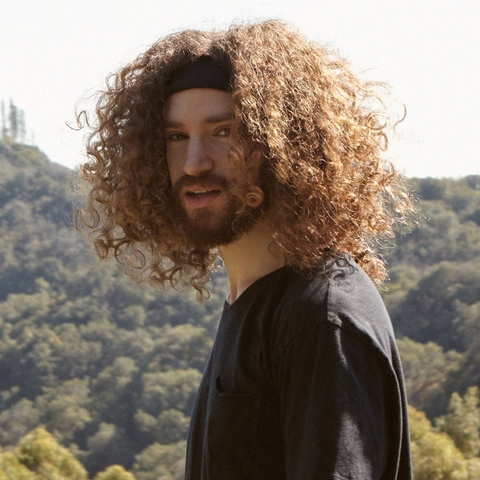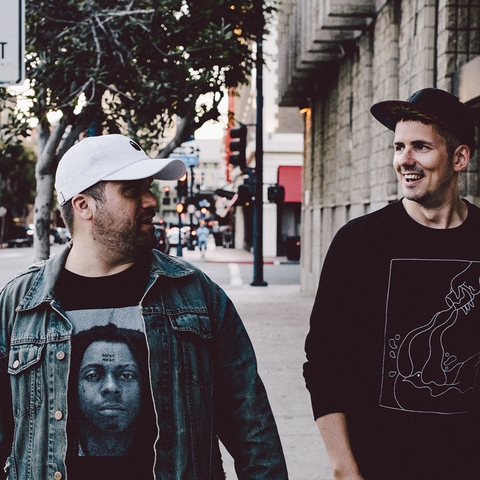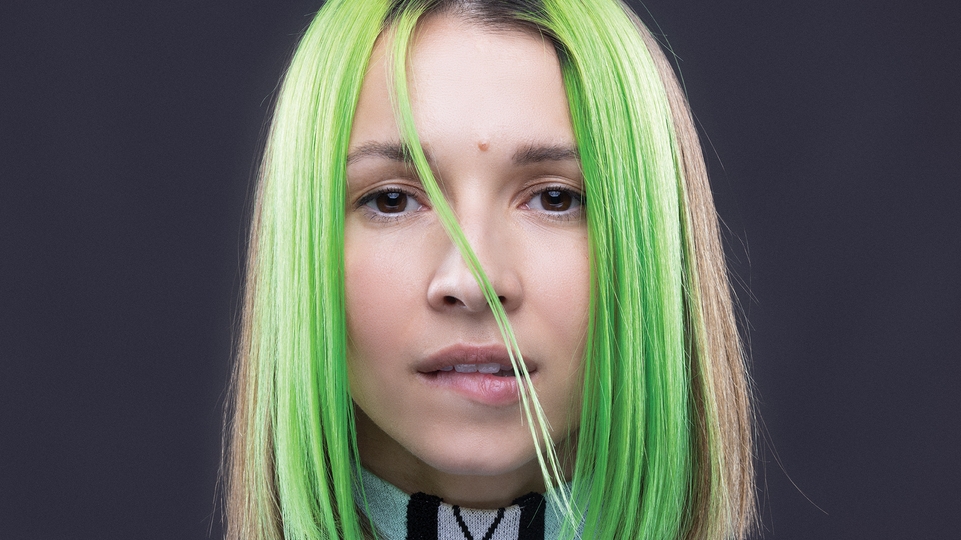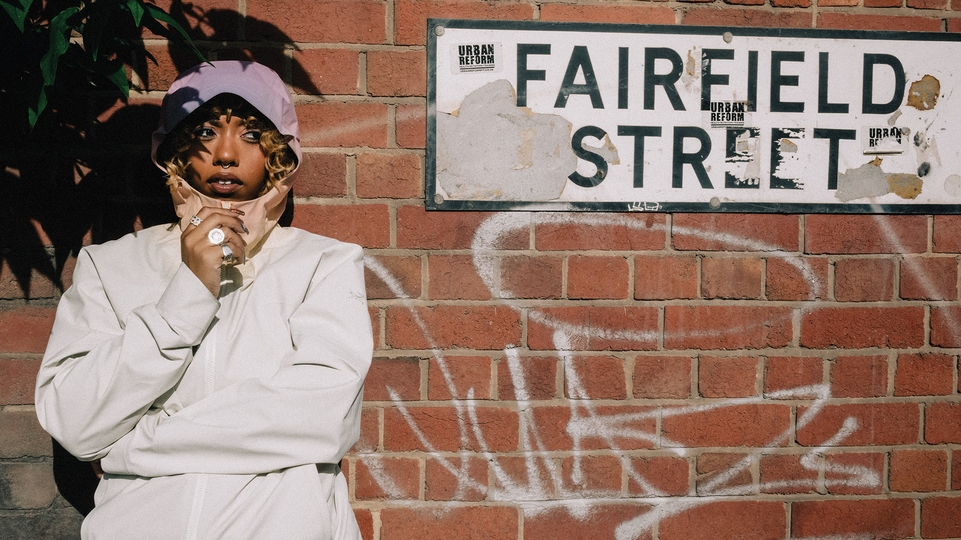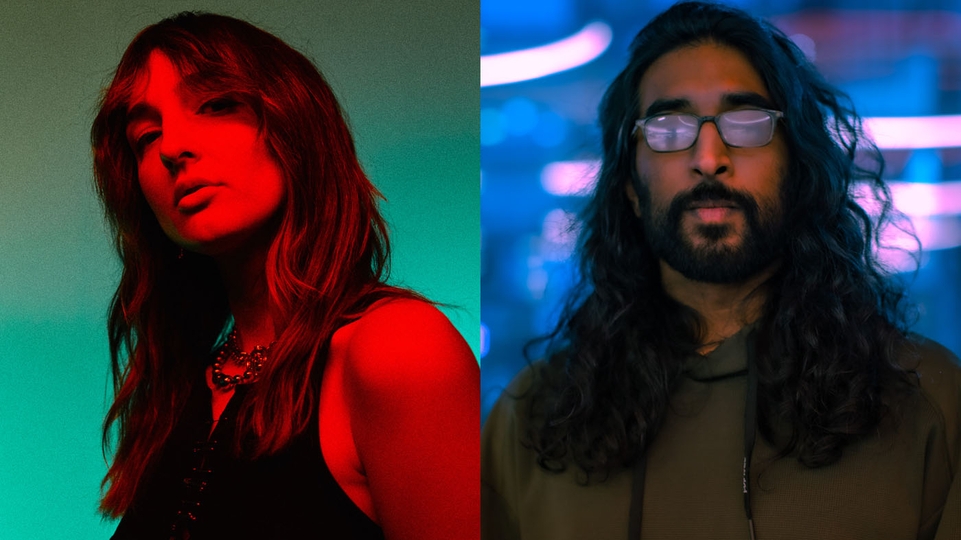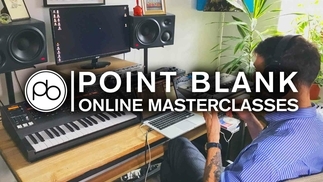Dirtybird: and the beak goes on
Claude VonStroke and his Dirtybird label celebrate 15 years with the wind beneath their wings this year. To mark the anniversary, the label head is celebrating with a new album and commemorative book
To get to the headquarters of one of America’s most successful dance music labels, you need to head into the suburban tracts of Los Angeles’ San Fernando Valley. There, amid the ranch houses and “drive like your kids live here” signs, husband and wife duo Barclay and Aundy Crenshaw run Dirtybird Records out of a nondescript building behind their home. It’s at the end of the property, behind the swimming pool and sprawling yard, where a pair of chickens called Cassius and Disco live. The space inside is roomy enough, but between the grand piano — a family heirloom that once belonged to the Cleveland Orchestra — and 10 employees, it can get crowded.
“Everyone looks at us and says, ‘Oh, you guys are doing amazing.’ And it’s like yeah, we’re actually growing. We’re doing okay,” says Aundy, who since 2014 has served as Dirtybird’s multi-tasking head of marketing, finance, and operations. “But still we’re not at a level where we can actually afford an office.”
Still, they have much to be proud of. In the 15 years since Barclay founded Dirtybird, it’s grown from an underground house label with a cult following into one of the biggest players in American electronic music. It’s home to major releases from established artists like Shiba San, Catz ’n’ Dogz, Eats Everything, and Barclay’s DJ and producer alter ego Claude VonStroke, as well as white-hot new artists like FISHER, Rebuke, and Walker & Royce. At this point, Dirtybird is practically a genre unto itself: with a bass-heavy sound that, no matter how trippy it gets, always bumps.
To celebrate 15 years, Dirtybird is kicking off 2020 with a pair of major projects, both due in February: a coffee table book designed by San Francisco illustrator Jeremy Fish, chronicling the label’s history in words, photos, and artwork; and ‘Freaks And Beaks,’ Claude VonStroke’s fourth studio album from . At Dirtybird HQ, Barclay shows off a proof copy of the book-and-album bundle, trimmed by multi-coloured page markers that indicate last-minute corrections. The photos are even more colourful than the page markers, full of smiling faces from Dirtybird’s many epic live events — its long-running residency at San Francisco club Mezzanine, Campout festivals, and BBQ tours.
It’s a gorgeous package, but Crenshaw is sweating this final push before the book goes to print. “All the corrections, the sourcing of the photos.” He sighs, as he gently closing the book. “It’s just a massive project. It’s some insane amount of terabytes of photos we had to go through, but I’m glad we did it.”
Crenshaw’s not usually one for victory laps and resting on his laurels, but now feels like the right time to take stock of what he’s accomplished. He’s gone from sleeping on floors and hustling for gigs (more on that later), to helming a hybrid label, merchandise, and event production company. Their influence is so far-reaching that, even when festivals don’t book a Dirtybird DJ, the Dirtybird name still comes up. Friends in the industry have told Crenshaw that “in giant rave company meetings, they’re like, ‘Who’s doing the Dirtybird slot?’”
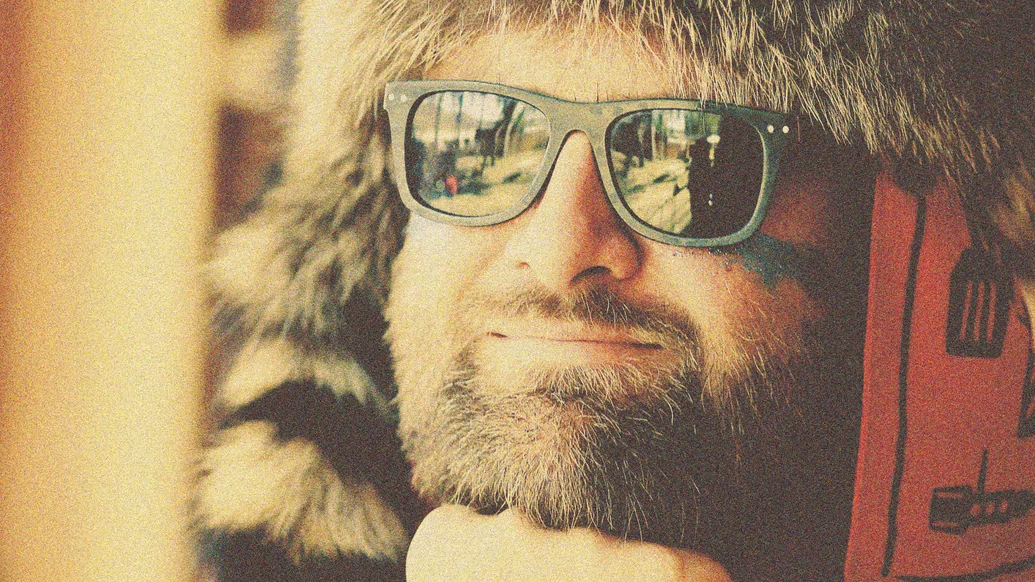

“[The Electrifying Mojo] would play Beastie Boys, Prince, Parliament-Funkadelic, Juan Atkins, Spoonie Gee, everything. So cool. All over the map. That was way more influential than I could even put into words”
INCUBATION
Dirtybird’s sound is a product of Barclay Crenshaw’s youthful influences — which aren’t what you might think. Over strong coffee, Crenshaw reminisces about a pivotal childhood move from Cleveland to Detroit. There, for the first time, he was exposed to techno — but at first, he admits, “I did not like it.”
Back in middle school, he was way more into hip-hop. He and a friend would set up two boom boxes in his bathroom (“so we would have reverb”) and record themselves rhyming and beat-boxing, recording the playback from one boom box onto the other so they could add overdubs.
“I made rap tapes like that,” he recalls, sporting a zippered black T-shirt and his trademark sandy brown beard. “I didn’t know what I was doing. Which was kind of good, probably.”
He credits the legendary Detroit radio DJ The Electrifying Mojo with expanding his musical horizons. “Cleveland radio was like, Journey,” he jokes. “But Detroit had a radio show that would play Beastie Boys, Prince, Parliament-Funkadelic, Juan Atkins, Spoonie Gee, everything. So cool. All over the map. That was way more influential than I could even put into words.”
After a move to San Francisco in 2000 to pursue filmmaking, drum & bass became his gateway into electronic music. The sound dominated the city’s Burning Man-adjacent late-night party scene. “It had this gritty hip-hop element, but it was also incredibly produced. I’d just never seen anything like it, going to those parties,” he tells DJ Mag North America.
While working at a busy post-production house, Crenshaw produced tracks in his bedroom and picked up the occasional DJ gig. But he soon found himself growing disenchanted with the scene that had rekindled his interest in making music. The jungle and drum & bass crowds he was playing to were overwhelming male — and too cool for school. “I was playing really evil bass music, and there would be some guys in the back just like...” He mimics the disaffected head-nod that is the bane of every young DJ attempting to get a party started.
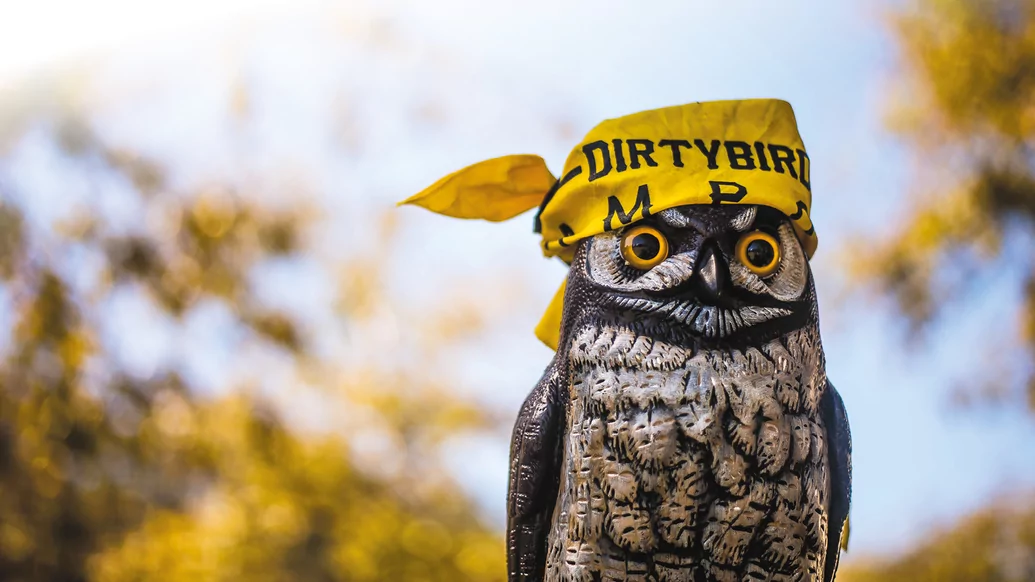

As Crenshaw was trying to move these stoic dancefloors, his friends were discovering San Francisco’s house scene. “I hated the house that they were listening to at these parties, but I realised that all the girls were there.” That led to a flash of insight: “We love jungle, and we hate this kind of house — so let’s just try to bring the grit into the super-sheeny house scene.”
Though Crenshaw credits other influences to the Dirtybird sound — Detroit techno, ghettotech, and German label Playhouse — he says that early mission still underpins much of what the label does now. “We’ll put some 808s and some pads and some things that make house more jungle-y,” he explains. “We need to get our shit to be more bumpy. More blippy-bumpy. And get rid of this...”
He pauses and sighs. Crenshaw is not a shit-talker by nature, so this next part is uncomfortable for him. “I always diss Om Records. Do I always have to diss Om? This time I’ll diss Naked Music.” He laughs a hearty guffaw. “That was the music where we were trying to say, ‘We hate this, and we’re gonna make [our own version], but we’re gonna make it bumpy, gritty, and fun.’”
With all due respect to Om and Naked, who released some of the best West Coast deep house tracks of the early ’00s (and are “such nice guys,” Crenshaw is quick to note), it’s easy to see what he’s getting at. Bay Area house music at that time was smooth, soulful, and sophisticated — often to a fault. The DJs that Crenshaw and his cohorts revered, by contrast — guys like Derrick Carter and booty bass pioneer DJ Assault — favoured beats that were dark, dirty, and a little unhinged.
No club would book them, so Crenshaw and his friends held their own parties in Golden Gate Park in 2003. All afternoon, they barbecued and played their “blippy-bumpy” version of house music on an improbably large soundsystem that no one could actually afford; Christian Martin charged it to a credit card. The core Dirtybird crew had already formed by then: Barclay and Aundy, brothers Justin and Christian Martin, Worthy, and the barbecue master that everyone calls Grillson; Crenshaw says that he just magically appeared with coals and burgers at the first BBQ, like something out of Field Of Dreams.
Between BBQs, everyone hung out at the Lion’s Pub on Divisadero Street, where the Martin brothers tended bar. Aundy lived just across the street, too. By the summer of 2003, she and Barclay had been dating off and on for about a year, “but I had no idea that he was talented,” Aundy admits. It wasn’t until she moved into Barclay’s apartment in the Lower Haight and heard him producing tracks that she realised he had a gift.
But he lacked focus. As well as DJing, throwing parties, and holding down his post-production day job, Barclay was pursuing film-making. He had just completed work on his own feature-length film, a documentary about dance music called ‘Intellect: Techno House Progressive’. He was talking about becoming Justin Martin’s manager. Where others might have seen an over-achiever, Aundy saw a workaholic who needed to pick a lane. “I was like, ‘What do you want to do?’” she recalls. “‘You’re doing nine jobs. What do you really want to do with your life?’”
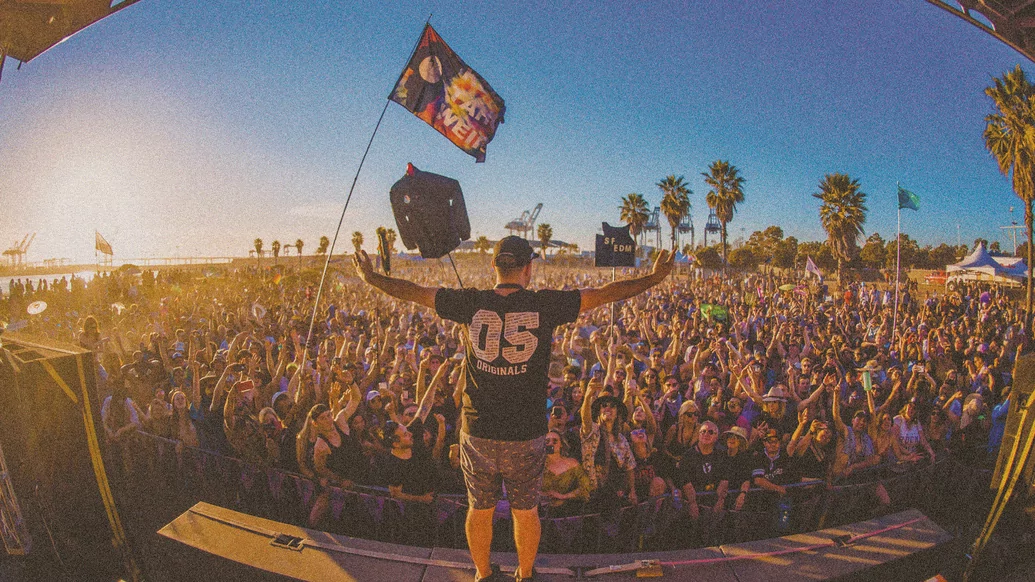

It didn’t take much soul-searching for Barclay to find the answer: launch his own label. Aundy gave him an ultimatum. “I told him, shit or get off the pot,” Aundy says now with a laugh. “You’re 31 years old. Just figure it out. You’ve got to do it, or don’t do it.”
Aundy, a successful advertising and marketing consultant, made her soon-to-be husband a deal. For one year, she would pay the bills while he launched his label. If, at the end of that first year, he could prove it was a financially viable career path, he could keep doing it. If not — it was back to the day job.
TAKING WING
In that first year, Crenshaw worked his ass off. Aundy’s hard deadline lit a fire under him. “It was gonna happen. I stole the promo list from Om. I hand-mailed vinyl records to every DJ on the planet,” he remembers. “I was so focused that I don’t think I could have been stopped.”
Crenshaw launched Dirtybird in 2005 with a logo handdrawn on a napkin and one artist, Justin Martin. At first, Crenshaw was content to stay in the background, but “then I decided I’d been making music for too long to not at least dabble.” His remixes of Martin’s first two singles were well-received, but his first original production and the label’s third, ‘Deep Throat,’ was a phenomenon. By the time Aundy’s one-year deadline rolled around, it had already sold over 12,000 physical copies. Crenshaw had his proof. He could make this work.
Crenshaw describes his debut Claude VonStroke single, somewhat self-deprecatingly, as “kind of a riff on ‘Percolator’” — the house classic by Cajmere, one of the aliases of Chicago producer and future VonStroke collaborator Green Velvet. Fifteen years after its release, the track still sounds fresh — but in 2005, its mix of oddball mouth percussion and enveloping bass was unlike anything else on the market. “We were renegades,” Crenshaw says proudly.
The name Claude VonStroke was chosen almost as an afterthought — the product of a drunken late night at the Lion’s Pub, when the Dirtybird crew made up jokey European minimal techno DJ names for each other. The others have since been forgotten, but VonStroke stuck. If Crenshaw had any second thoughts about the goofy stage moniker, they were soon erased. The first time he visited Fabric, booker Judy Griffith told him, “I fucking saw this record, ‘Deep Throat,’ by Claude VonStroke, on Dirtybird, and I was like, ‘I have to buy this record. I don’t even care what it sounds like.’”
Crenshaw visited Fabric in 2005 as part of a European trip to drum up bookings. They didn’t give him a time slot that night, but they did let him crash on the floor of their office. “I was like, I have three tracks that every DJ in the world is playing, and I have no gigs,” Crenshaw remembers. “I didn’t even have a booking agent, so I literally flew to Europe and just started meeting with everyone. I was so gung-ho.”
That hustle paid off in a big way. VonStroke’s next single, ‘Who’s Afraid Of Detroit?’ was an even bigger smash. By 2009, Dirtybird was an established force in American dance music, with a roster of in-demand DJs and producers that now included Catz ’n’ Dogz, Riva Starr, Julio Bashmore, and J. Phlip.
They had also outgrown their original party location, Golden Gate Park. “We had a permit to bring a Jambox with some sandwiches,” Crenshaw says. “And 2,700 people show up. So we got kicked out.”
Dirtybird could have peaked there. Crenshaw was in a comfortable place. The label’s parties at Mezzanine were drawing capacity crowds. Their singles were, by underground label standards, selling like hotcakes. VonStroke’s 2009 mix for the celebrated ‘Fabric Live’ series was getting rave reviews. Things were good.
Crenshaw’s home life was comfortable, too — maybe too much so. In 2010, in search of better schools for their two kids, he and Aundy relocated to Marin County, north of the city, which Crenshaw describes as “unbelievably beautiful. It’s like moving to wine country, but not that far.” Soon, however, the bucolic surroundings had them feeling restless. “We realised that, because it was so nice, we were kind of acting like we were retired already. I was still going out every weekend to DJ, but our lifestyle was like, we’re done.”
Crenshaw knew he needed to shake things up, but wasn’t sure how — until a friend suggested that a simple change of scenery might be in order. Up in San Francisco, the friend told him, “You’re like this outpost. Only a few people know who you guys are. I bet you the second you move to Los Angeles, you just get in the chatter, and it would be huge.”
In 2013, the Crenshaws made the move. They packed up the kids and Dirtybird operations, and rented a house in a neighborhood Barclay describes as “Beverly Hills, except they never fix the streets.” By sheer coincidence, their neighbour was HARD Events founder Gary Richards — who Crenshaw already knew, having played at his events. The proximity, just as Crenshaw’s friend had predicted, deepened their relationship. Within a year, Dirtybird had its own stage at HARD Summer.
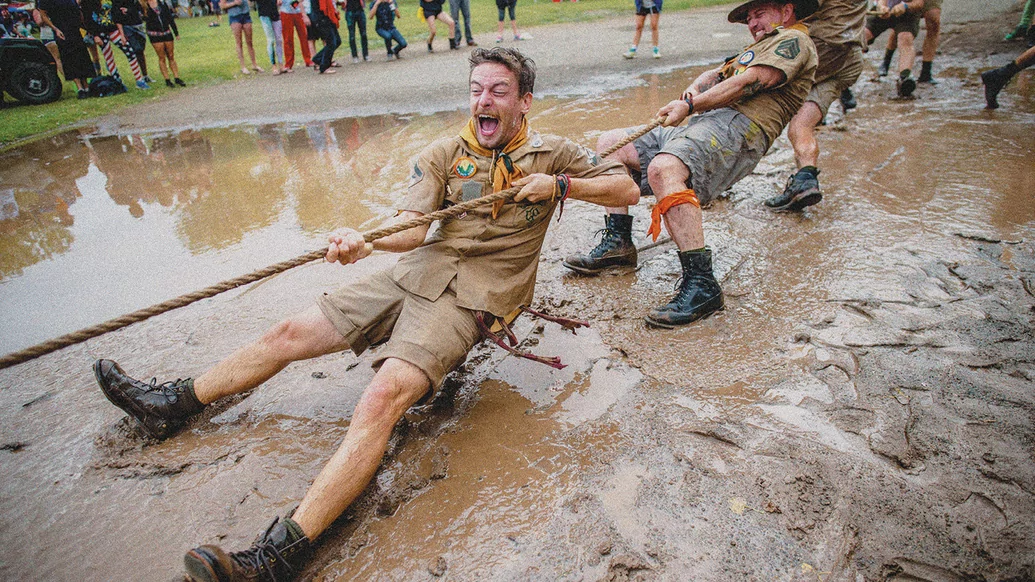
Other relationships quickly followed. Crenshaw signed to Diplo’s management company, TMWRK (though they’ve since amicably parted ways). He did remixes for Rihanna, Disclosure, and the Chemical Brothers. One by one, Dirtybird tracks started blowing up at a level they’d never seen before: Breach’s ‘Jack,’ Shiba San’s ‘Okay,’ Kill Frenzy’s ‘Make That Booty Clap.’ Crenshaw’s label was on a roll.
But he needed help. Up until then, Crenshaw had built Dirtybird more or less on the fly. “I was guessing and going on emotional instinct with every decision for years,” he recalls. “I was making my own artwork. Even just trying to generate royalty reports was an absolute nightmare for years. It was hard but it was small so, not impossible.”
BIG BIRD
After their arrival in LA, they started a clothing company and an events company, and the record label starts doubling its release schedule. At that point, Crenshaw realised that he needed some help. He hired a new label manager, Deron Delgado, fresh from running the DJ download site Stompy.
He also found help under his own roof. At first, when Aundy officially joined the label staff in 2014, she was just in charge of merchandise. But within a year she had risen to the role she occupies to this day. (Barclay still serves as CEO, though as Aundy half-jokingly notes, “he doesn’t really know what that means; he doesn’t come from the corporate world.”)
With her background in marketing and advertising, Aundy has been able to guide Dirtybird’s growth strategically. In 2014, the label reintroduced the BBQ parties as a touring venture, bringing Dirtybird’s party-in-the-park vibes to cities as far-flung as London, New York, and Toronto. A year later, they launched their annual festival, Campout — at first in collaboration with Lightning In A Bottle producers Do LaB, now entirely on their own. (“We’re psychos,” Barclay chuckles. “It’s so hard.”) In 2018, their clothing division made $1m in profits.
Perhaps most importantly, with Aundy handling the business side, Barclay could devote more time to making music. It’s no coincidence that right around the time Aundy was getting more involved, VonStroke released one of his strongest singles: the insistently funky ‘Make A Cake’ and its nastier B-side, ‘Barrump.’ In 2016, he debuted that collaboration with Green Velvet under the name Get Real; a year later, he returned to his roots with an album of hip-hop and bass music, released under his own name.
‘Freaks And Beaks,’ his first Claude VonStroke album since 2013’s ‘Urban Animal,’ builds on those more recent projects. It’s his most eclectic album to date, full of everything from breakbeats and old school sawtooth synths, to Bollywood flourishes and ambient street noise. “I’m trying to get weirder,” Crenshaw explains, as he queues up tracks in his decked-out home studio, where a wall of keyboards and modular synths is carefully arranged for maximum inspiration.
As he restlessly shuffles through snippets of tracks from the new album, Crenshaw name-checks his influences: Playhouse Records, the Chemical Brothers, Matthew Herbert, Four Tet.
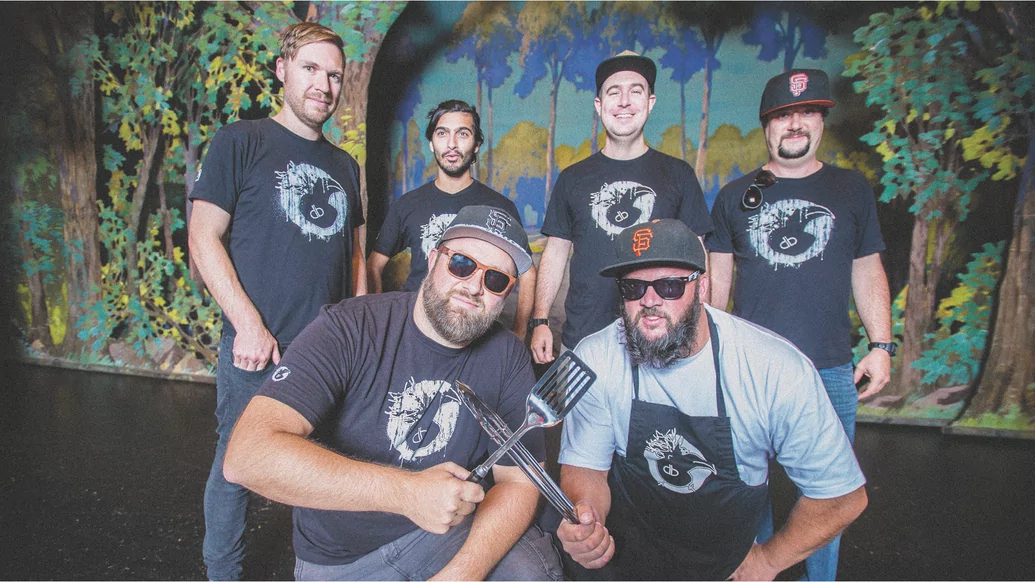
Apart from the pretty ambient synths and chimes of the Kieran Hebden-like album closer, ‘Alpine Arpline,’ these inspirations don’t necessarily jump out at you. This is still very much a Claude VonStroke album, full of goofily distorted vocals — often performed by his kids, Jasper and Ella — and bass that chestbumps you like a touchdown-scoring fullback.
“I’m good at dumbing down highbrow ideas,” Crenshaw says. “Or not dumbing them down, maybe, but making them work in a club environment.”
‘Freaks And Beaks’ is the fruit of a new daily routine Crenshaw calls “Automatic Music Machine”: every day, no matter what mood he’s in, he makes a beat. When it came time to put together the album, he had over 300 tracks to choose from — many of them, by his own admission, not very good, but that’s not the point. The point is the discipline of it, like a writer keeping a journal.
He’s disciplined in other areas, as well. Crenshaw still listens to every demo Dirtybird receives — and because of their open submission policy, he estimates the pile is around 800 to 1,200 tracks deep every time he checks it. “It’s so brutal,” he says, “but it’s what I’m good at and it’s the lifeblood of this company.”
Over the years, the anonymous demo pile has yielded some of Dirtybird’s greatest treasures: Shiba San, Justin Jay. It’s still proving fruitful. Right now, Crenshaw is particularly high on a 17-year-old from Brazil named Cour T. who came from the bottom of the pile. Dirtybird does very few artist signings, but when Crenshaw heard the molasses-thick bass and trippy atmospherics of Cour T.’s ’Black Magic,’ “I signed him, straight up.”
When Dirtybird started “there weren’t even any other DJs that sounded like us.” But these days, much of the demo pile is full of copycats. Success breeds imitators — a trend Crenshaw hopes to change through his own music. “On this album, I’m trying to lead by example.”
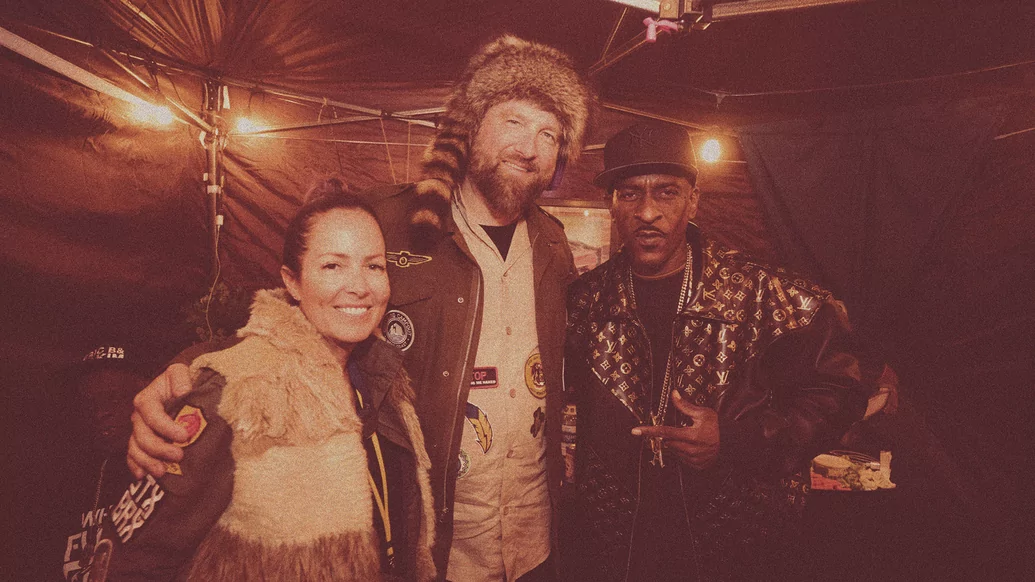

GLIDING ONWARDS
Asked to talk more about the proliferation of a “Dirtybird sound,” Crenshaw sighs and scratches his beard. He’s resisting the urge to shit-talk again. “This part is harder to navigate.”
Instead of calling out the obvious rip-off artists, he chooses to name-check the Dirtybird acolytes with whom he has a good relationship: Southern California party crew Desert Hearts, up-and-coming label-and-producer team Percomaniacs, and the laundry list of current and former Dirtybird signees who’ve struck out on their own.
“Will Clarke started a label this year. Shiba has his own label. Worthy has his own label. Justin’s about to start a label. Christian has Trippy Ass Techno. Everyone who wants to do a label, I’m like, ‘Cool, do a label. Because then you’re gonna really appreciate what I do, because you’re gonna see, wow, this is kind of hard.’”
He laughs again, that infectious guffaw that’s behind all things Dirtybird. “My initial reaction to people doing other labels was like: ‘Oh god, I’m fucked.’ But now I love it. Because I see that it just deepens the connection. Everyone just kind of assumes that it’s part of [Dirtybird] anyway. Like, people don’t look at Trippy Ass Techno like, ‘That’s completely off of Dirtybird. It’s a different entity.’ They’re like, ‘That’s from Christian. Christian’s from Dirtybird.’ It’s a giant family tree.”
In the end, it just means more good house music in the world. The bumpy, gritty kind. Which, going back to Crenshaw’s early days, throwing those parties in Golden Gate Park with his friends, was the goal all along.


